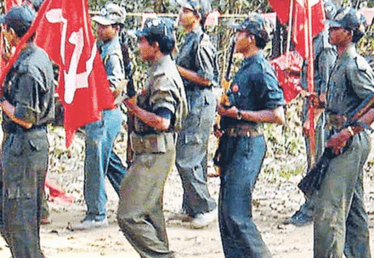War-of attrition : On the fight against Maoist insurgency
Despite military gains, a solution to Maoist insurgency cannot be based on just violence
For a long-standing insurgency that peaked in the early to mid-2000s, the war against the Maoists has settled into some sort of pattern. Recently, the insurgents suffered a series of blows from paramilitary and police forces, which include the killing of at least 29 Maoists in the Bastar region in Chhattisgarh on Tuesday. Limited to the jungles of central India and in places of sparse tribal presence with a weaker presence of the developmental and welfare state relative to the rest of the country, the Maoists have been significantly diminished as a political-ideological force with few takers for their party’s — the Communist Party of India (Maoist) — ideology or visions of an alternative state. What they have retained, however, is an ability to target security forces — evident in the killing of 22 paramilitary personnel in April 2021 and 10 jawans in April 2023. This has necessitated security forces to use unconventional military tactics and new combing routes to target the armed Maoist cadres . While these attacks weaken the military strength of the Maoists, they cannot cumulatively wipe out the threat of the insurgents as claimed by the Union government. This is because the Maoists are in difficult hilly terrain and have shown the ability to win-over some discontented sections of the tribals, who are affected by the civil-war .
After two decades of fighting the Maoists, whose strength peaked after two prominent Naxalite parties merged into the CPI (Maoist), the Indian state has long realised that the only way out is to take them on militarily while winning over tribals through welfare measures. In the late 2000s, the use of ploys such as arming tribals to take on the Maoists through flawed campaigns such as the Salwa Judum backfired . Later, in a change of tack , the reach of the welfare state and the bureaucracy gradually expanded into hitherto inaccessible areas in central India and helped negate Maoist propaganda about the Indian state being exploitative . Several tribal people, tired of the warfare and violence, refused to support the Maoists, leading to desertion in their ranks in other States as well. In Chhattisgarh, however, the constant warfare has helped the Maoists tap into some discontent . Civil society and peace activists have tried to initiate ceasefire talks between the Maoists and the security forces besides asking the insurgents to use democratic means to take up tribal causes . But the Maoists, despite setbacks , have refused to give up on their anachronistic ideology . Their unwillingness to accept that the poor tribals, whom they claim to represent, only want better engagement and outcomes from the welfare and electoral system, and not a violent overthrow that jeopardises their lives, has ensured that the war of attrition continues.
